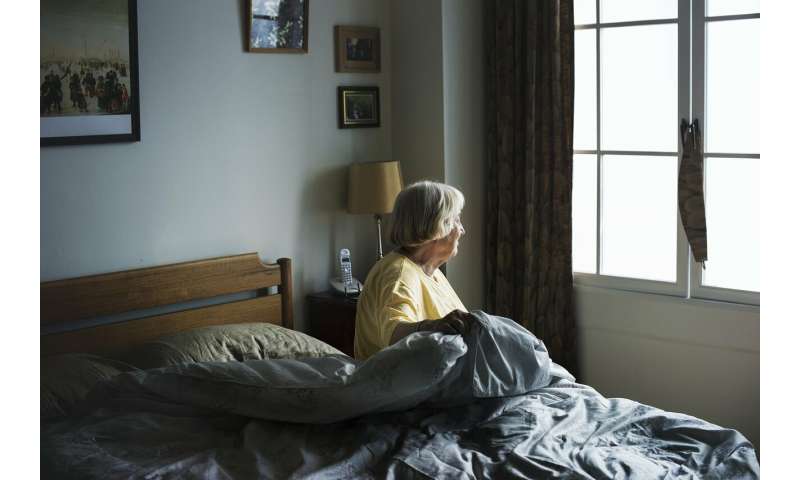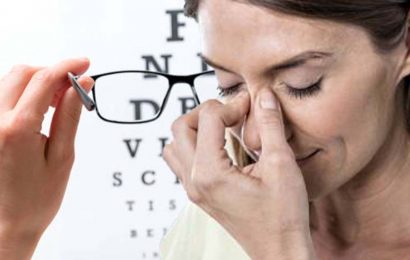
Nursing home residents and workers account for about one-third of COVID-19 deaths in the United States, so far, according to media reports.
Sheria Robinson-Lane, a gerontologist and assistant professor at the University of Michigan School of Nursing, is an expert in palliative and long-term care and nursing administration. Her research focuses on the care and support of older adults with cognitive and/or functional disabilities, and on ways older adults adapt to changes in health, particularly how adaptive coping strategies affect health outcomes.
Why is the risk so much greater in nursing homes?
Some of our most vulnerable adults live in nursing homes. Just to qualify for a nursing home stay, whether for short-term rehabilitation or long-term care, you must require 24-hour nursing care. This care is generally necessary as a result of significant injury, like a fractured hip or a traumatic brain injury, or related to worsening of chronic disease.
In general, more than 90% of older adults have at least one chronic disease. More than 70% have at least two chronic diseases. In nursing homes, this number starts to go up significantly. As a result of chronic disease and/or injury, people in nursing homes generally do not have optimal immune system functioning, so it’s a lot easier for them to get sick in general.
When you add to that living and working in close quarters with others, both the folks who live there and the people that take care of them are at risk for infectious diseases. Managing the transmission of infection is nothing new for nursing homes, but the incredibly contagious nature of COVID-19 has made this very challenging to contain within nursing homes. Unfortunately, due to the already weakened state of many of the residents of these facilities, getting sick is often fatal.
How do I decide whether to bring my loved one home to live with me, temporarily?
The choice to place a loved one in a nursing home is a challenging decision that families struggle with from the very beginning. The reality is, the vast majority of people in nursing homes have care needs that cannot be easily met in a home environment.
For others, it’s possible they could successfully transition to a home environment with the right community services in place. Unfortunately, due to COVID-19, many community-based programs are struggling to meet the needs of current clients.
So the primary thing to consider and question to ask when thinking about bringing someone home is, exactly what are the care needs of my loved one, and do we have what we need to effectively manage their care at home?
Other questions to consider:
- How is the person’s mobility? Can they get in and out of your house easily?
- If dementia is a concern, how will we keep them safe at home?
- What help do they need with things like going to the bathroom, toileting and eating?
- Do they require a special diet?
- Do they have any wounds or sores that need to be treated and who can assist in caring for this?
- Do they require any equipment?
- Do they have a need for regular physician visits or blood tests? How will we manage this?
And probably the most important question is, do they want to go home with you?
If there have already been COVID cases at the facility where a family member is, and you are comfortable with their care needs at home, it is also important to remember that they may have already been exposed to the virus, and so there should be a plan for in-home quarantine, as well, for 14 days after discharge from the facility. This means thinking about how to keep them isolated from other family members during this time.
Is it safer for my older adult loved one to be in my home than in a nursing home?
The answer here is that it depends. The safest place for any older adult is where they can get all of their care needs met effectively and have the least amount of exposure to COVID-19. Most facilities should have plans in place for socially isolating COVID positive patients. Bringing a loved one home can be the safest place for them if there are no essential workers in the home, appropriate precautions are taken when it is necessary to leave the home (mask-wearing and handwashing), and you are able to meet all of their care needs.
What policies at the state and federal level could lessen the risk for nursing home residents?
Nursing homes are currently very heavily regulated at both the state and federal level. There are specific rules around how infections are tracked within facilities, necessary postings, expectations regarding care and, of course, sanitation.
I think that the primary thing that will lessen the risk for nursing home residents and staff is to significantly expand rapid testing availability. This would make it so much easier for facilities to be able to appropriately quarantine sick residents, limit spread and manage staffing.
Source: Read Full Article


